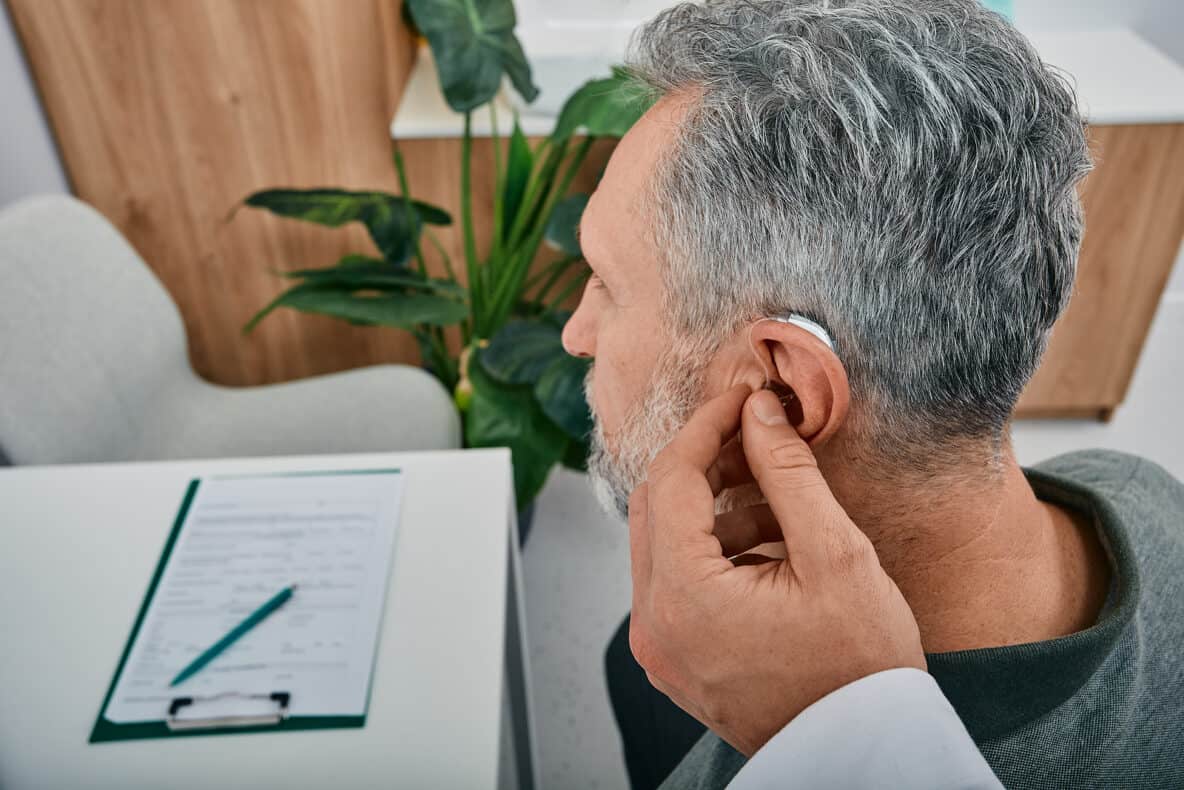Beyond the toll that hearing loss takes on everyday connection, it raises the risk of accidental falls by twice as much as compared to people with healthy hearing.
In a survey of more than 270,000 people, scientists examined the link between hearing loss and the risk of serious falls. Published in the Journal of the American Medical Association, it was found that self-reported hearing problems correlated with an increased risk of accidents, and those with “a lot of trouble” hearing were associated with a twofold greater risk.
Why falling matters
Taking a spill is a big deal! You can seriously injure yourself or worse. As we age, falls become more dangerous. They account for the majority of injury-related deaths in the US for people over the age of 65.
Even if you emerge without a scratch, falls can be scary and wreck future confidence. According to the Centers for Disease Control and Prevention (CDC), falling once doubles your chances of falling again.
The data on hearing loss and falls
The number of Emergency Department visits every year as a result of falls total into the millions and can happen in the home, at work or even in leisure pursuits. As the severity of hearing loss increases, so does the likelihood of falling.
People with even minimal hearing loss were 20 percent more likely to report a fall as compared to people with healthy hearing. For those with more moderate hearing loss, they had a 40 percent higher rate of falling and injuring themselves. People who have serious hearing loss, or a lot of trouble hearing, were 50 percent more so.
Why hearing loss drives accidents
Less spatial awareness
It isn’t just about a potential fall, people with hearing loss are also more likely to be injured accidentally. When hearing is challenged, it’s more difficult to be alerted to potential dangers that might otherwise bring a clear, audible warning. Car horns, shouts from others or even the sound of our dog rushing up behind us are all audio information that helps us navigate unsafe situations.
Less attention capacity
Hearing loss also brings a mental taxation that diminishes our capacity to pay attention. As hearing loss progresses, our brain tries to make sense of what people are saying without all of the pieces of information it needs. When our inner ear cells decline, due to age or noise exposure, we collect less sound information to send to the brain. The brain then must work exponentially harder to try and solve the puzzle.
This can feel exhausting to people with hearing loss and also demands all of the brain’s attention. People with hearing loss might have a harder time paying attention to the larger picture because they are so focused on trying to understand.
Balance issues
The inner ear is firmly related to balance, as the sense of hearing and balance both share a common nerve pathway. The vestibulocochlear nerve sends both auditory information and sensory balance information to the brain. When parts of the auditory processing side are affected, our vestibular (or balance) is, too. We also lose access to the parts of our hearing that give us subtle indications of where we are in space, or auditory anchors, thus accelerating a decline in our steadiness.
Ways to prevent falls
Treating hearing loss can have a positive influence on your sense of balance and may even prevent falls. A first-time hearing aid reduced the likelihood of a fall-related injury by 13 percentage points over the following three years, according to a University of Michigan study.
Hearing aids relieve some of the effort and stress related to listening fatigue, freeing up the brain to pay attention to balance and potential risks. They also provide a link back to the sounds that alert us to danger, like traffic signals and verbal warnings. Using the parts of our hearing dedicated to locating ourselves in space, we have a better sense of the external environment around us.
You can also work on improving your balance through practices like yoga or tai chi. Both use slow steady movements that support a more robust sense of balance by shifting weight from side to side or even standing on one foot!

